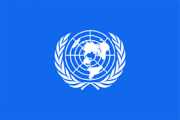Mr. Chairman,
I have the honour to speak today on agenda items 103: Crime Prevention and Criminal Justice & 104: International Drug Control, on behalf of the 14 member countries of the Caribbean Community (CARICOM) including my own country, Jamaica.
First, I wish to thank Mr. Sandeep Chawla, Deputy Executive Director of the UN Office on Drugs and Crime (UNODC) for his comprehensive presentation; and also thank the Secretariat for the useful reports provided under the two agenda items now under discussion. Against this background, we take note of the broad range of recommendations made in the reports for consideration by Member States and the relevant actors within the UN system.
In particular, we support the call by the Secretary General for special consideration to be given to the linkages between crime prevention and criminal justice and development, particularly in the post 2015 development agenda; the request for UNODC to assist Member States in implementing adequate procedures and mechanisms to strengthen national firearms control regimes; and the call for Member States to address the need to provide UNODC with adequate, predictable and stable resources to effectively discharge its mandate, particularly in the delivery of technical assistance to countries and regions where such need is critical. (source: document A/67/156 para 81 (a), (g) and based on para 81 (w)).
Mr. Chairman,
We are equally concerned about the growing phenomenon of cybercrime, which if unchecked, will be detrimental to our fragile and vulnerable societies. In this regard, we support measures to strengthen the UNODC in its global programme of technical assistance in cybercrime and in completing its comprehensive study on the impact of, and response to, cybercrimes, as noted in the Secretary General’s report.
Mr. Chairman
We live in a world where there is no region, no country and no people who remain untouched by the phenomenon of transnational organized crime. In our region, the illegal narcotics trade, trafficking in persons, narcotic drugs and firearms, and money laundering, as well as the gang violence and corruption linked to the illegal trade in goods, all pose serious challenges to citizen security. These serious criminal activities continue to hamper our development process, and undermine peace and security.
CARICOM comprises twelve islands and three continental States within a vast geographic zone that lies directly within the main corridors of illicit trafficking between major suppliers and consumers. With few exceptions, border security remains elusive even as we seek to maintain and conclude partnership agreements on security and development.
The International Narcotics Control Board in its 2011 report stated that due to its strategic geographic location, the Caribbean is continuously used as a major transit area for illicit drugs from South to North America. The report also underscored that this results in increased violence and crime in the region and pointed to corruption, limited law enforcement capacity and vulnerable borders in some States as factors which facilitate smuggling and illegal drug related criminal activity.
Nonetheless, it is noteworthy that the Region's efforts to counter the manufacture and trafficking of drugs through cooperation have been noted and encouraged in the Report. Several initiatives executed under the auspices of the United Nations Office on Drugs and Crime (UNODC), the Central American Integration System (SICA), CARICOM IMPACS and the Inter-American Drug Abuse Control Commission (CICAD) were featured in this regard. The Caribbean remains ready to engage with regional and international partners to focus its efforts on restoring a high level of peace and security to our region.
Most recently, in February 2012, the United Nations Development Programme also launched its first Caribbean Human Development Report (CHDR) - 'Human Development and the Shift to better Citizen Security'. CARICOM wishes to reiterate its commendation to UNDP for this timely report which examines the changing crime and security situation in seven CARICOM countries, and highlights a number of critical factors in relation to the rise in violent crime in the region which need to be urgently addressed. One such issue, Mr. Chairman is gun violence, as a result of which there are numerous deaths and injuries exacerbated by the ready availability and misuse of firearms. These are also due to the ease of access to markets in North America for firearms and narcotics trafficking, as well as the inability of States to better secure national borders.
For the reasons expressed above, Mr. Chairman, CARICOM was quite disappointed that the international community failed to take decisive action on a robust and legally binding treaty at the landmark Diplomatic Conference on the Arms Trade Treaty in July of this year; in spite of the support of a overwhelming majority to agree to a legally binding instrument that would prevent the diversion of arms to an illegal market. Nevertheless, for CARICOM, the missed opportunity of July is not permanent. We will continue to work with all delegations to achieve a comprehensive, robust and legally binding Treaty that will establish the highest possible common international standards to regulate the trade in conventional weapons.
Mr. Chairman,
Other major obstacles to Caribbean development and social cohesion cited in the CHDR were the prevalence of gangs and overall youth crime. Youth crime costs CARICOM countries between 2.8 and 4 percent of GDP annually, due to direct expenditure on combatting crime and in revenues lost as a result of youth incarceration, as well as from a decline in tourism. CARICOM, however, acknowledges that the situation can change and calls for initiatives with a stronger focus on prevention as well as a crackdown on youth violence and crime. Further efforts also need to be undertaken to promote education and to ensure that there are suitable opportunities available for youth to be able to realize their fullest potential and to make valuable contributions to the social and economic development of their societies.
The formation of gangs, Mr. Chairman, most likely to occur at the secondary school level, also affect the quality of life of the youth involved, as well as other citizens including their families and those residing in their communities. Gangs affect human capital and cause the diversion of substantial resources away from more productive uses. Moreover, the perception of high levels of crime and resulting insecurity has also been observed to negatively impact business and investments, important sources of revenue essential for socio-economic growth in the region. Furthermore, the brain drain caused as a result of these phenomena is yet another consequence of crime and insecurity in the region. The CHDR puts forward a number of recommendations which we will closely examine to address these concerns.
It is widely accepted, Mr. Chairman that citizen security guided by the rule of law is the core pre requisite to addressing transnational organized crime in all its forms. At the regional level, CARICOM, has recently embarked on the implementation of the regional Social Development and Crime Prevention Strategy. The approaches advanced in the Strategy are in keeping with the emerging concept of citizen security, which we acknowledge is a relatively new concept for the region which has been more focused on the security of the State as a whole in efforts undertaken thus far.
The fundamental objective of the Strategy is to prevent and reduce levels of violence and crime in Member States through a cross-sectoral and multidisciplinary approach focusing on areas such as reducing crime, fostering social inclusion, promoting reintegration, empowering victims and protecting the environment and economic resources.
CARICOM takes the opportunity to express its appreciation to the UNODC which played a fundamental role in the development and finalization of the Strategy, as well as to the UNDP and the Government of Canada for the valuable support provided in the implementation of the initial phase. The initiative is still in its initial stage but CARICOM looks forward to continuing our engagement with partners to combat crime and insecurity in our region and to further our development.
Mr. Chairman,
In the light of the critical scenario I have just painted, I take this opportunity to highlight the important role of the United Nations in our efforts to address the world drugs and crime situation, and in this regard, reaffirm the importance of the UNODC regional offices in developing countries such as ours to that end. As many of you are aware, the UNODC office with its important mandate to provide technical assistance towards the implementation of the Conventions and protocols, by strengthening the capacities of our countries in crime prevention, criminal justice and in the international drugs trade remains critical.
Now more than ever the decision to close the UNODC office in Barbados, which had serviced the Caribbean region requires urgent review. Notwithstanding our protests the office was terminated. We do not consider this a closed matter. As a region that is so deeply affected by the effects of transnational crime and the international drug trade; is committed to the international fight against these scourges and importantly remain seriously in need of the benefits of the office of the UNODC, we will continue to press the relevant actors to reverse the decision and demonstrate to the people of the Caribbean that our concerns are to be taken as seriously as any other group within the UN membership.
In closing, Mr Chairman,
We note that today’s challenging, complex and uncertain global environment has imposed new demands on the global community, individually and collectively, including in the area of national security. We challenge the UNODC to develop and adopt a redefined global strategy to address illicit trafficking in all its aspects through greater collaboration and cooperation at all levels, among and between regions and individual states, so as to address the general perils of transnational organized crime.
Thank you for your attention.


